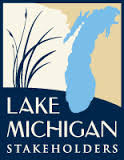Lake Michigan Champions of Conservation
Behind the scenes, many individuals, organizations, businesses, tribes, and government leaders are initiating outstanding programs and policies to protect and enhance the lands and waters of the Lake Michigan Basin.
Annually since 2014, the Lake Michigan Champions of Conservation awards have honored outstanding environmental achievements of those who have gone beyond the normal scope of work on the restoration, improvement, or enhancement of Lake Michigan and its watersheds.
the following nominees were selected as the 2023 Lake Michigan Champions of Conservation. Please join us in celebrating them!
Oneida Bird Monitoring Program
Led by Erin Giese & Tony Kuchma
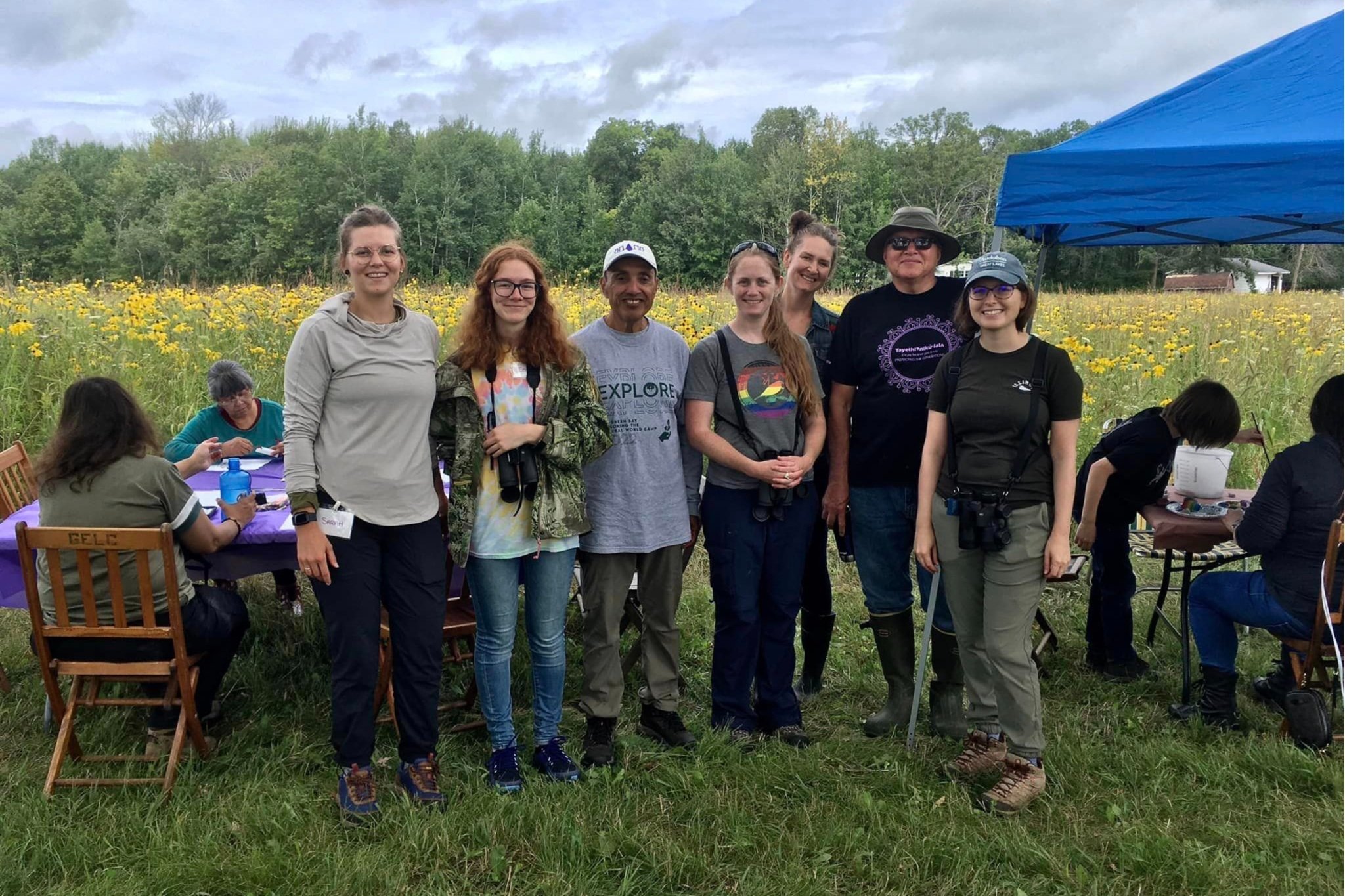
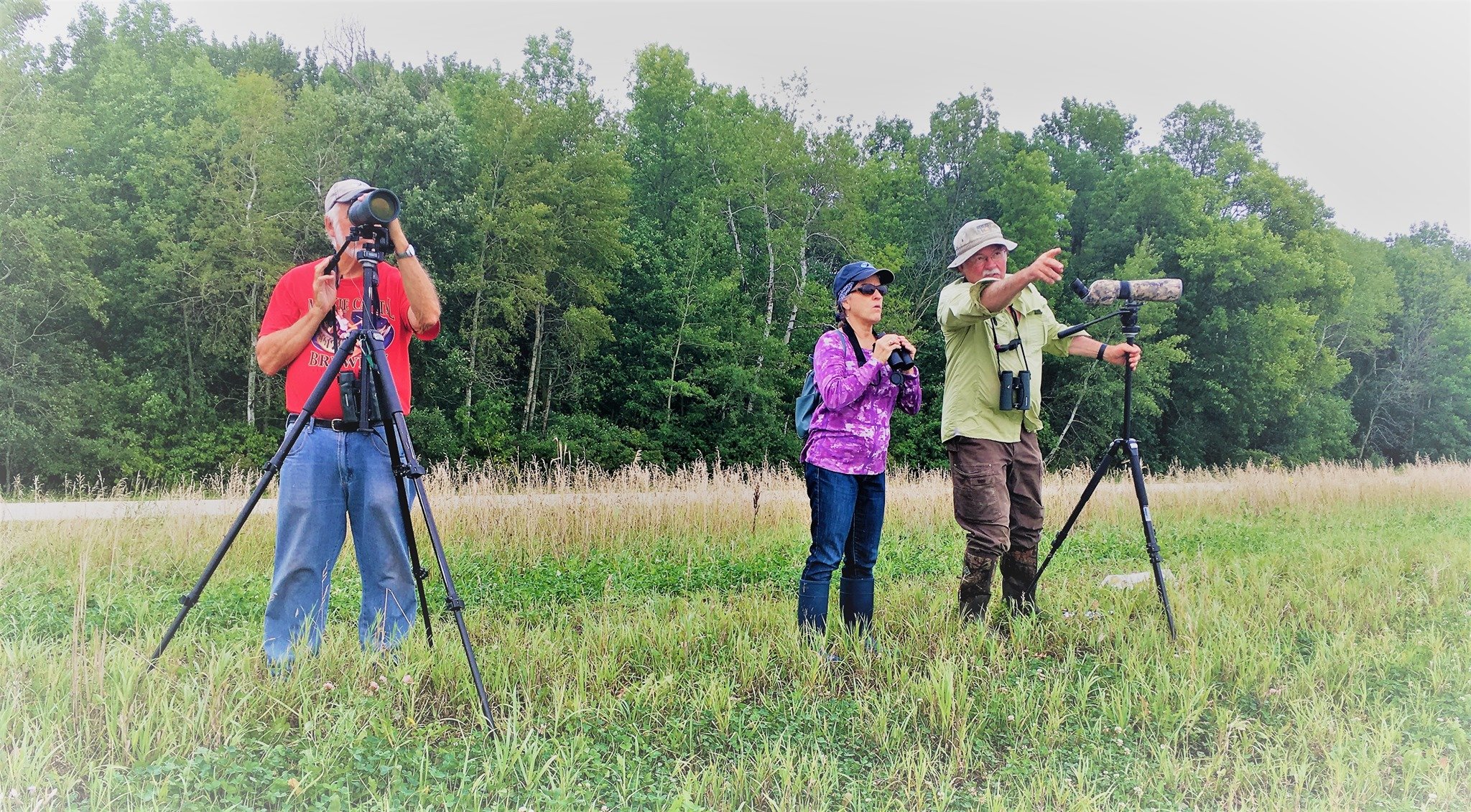
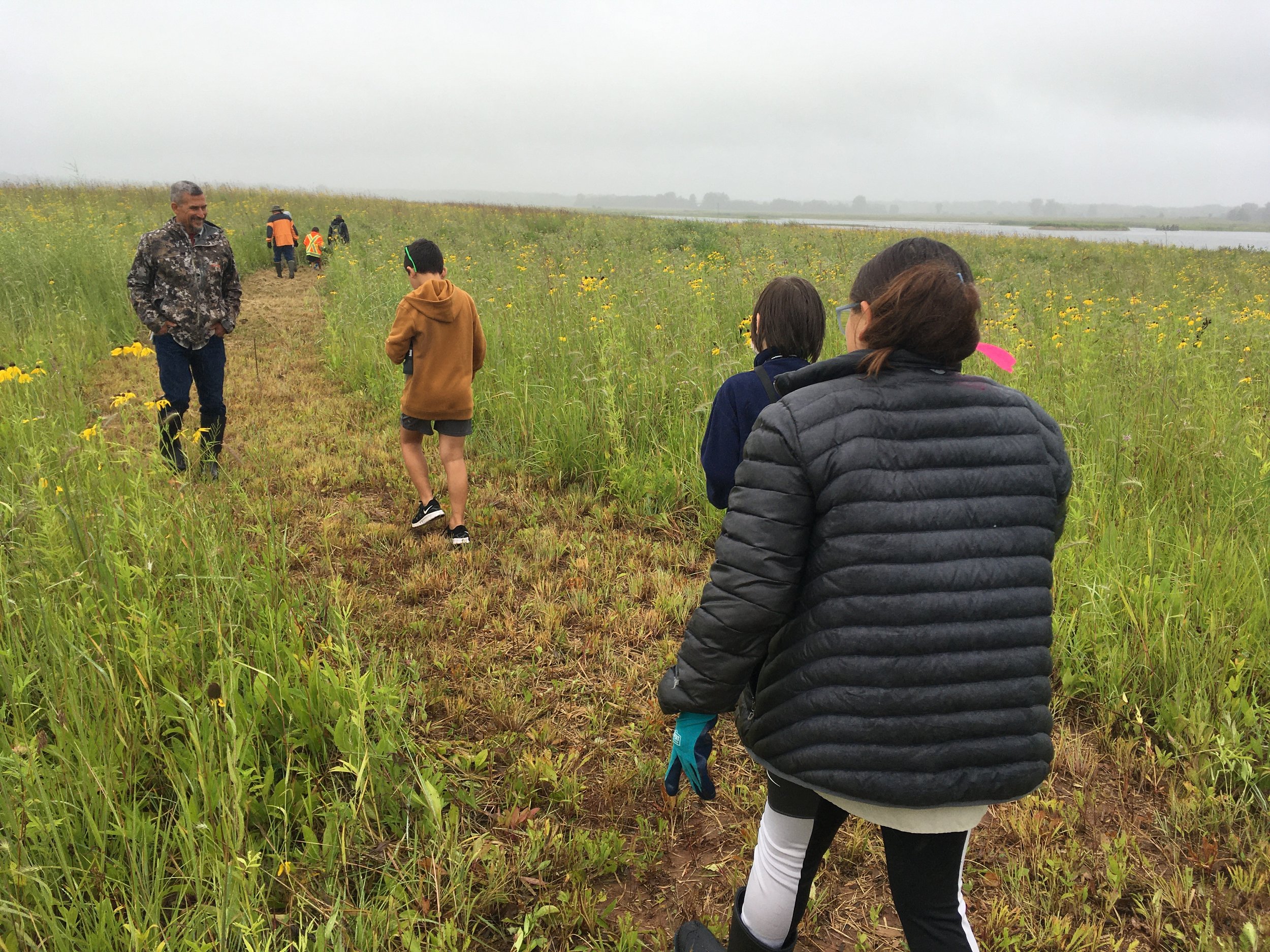
This multi-year cross-organization collaboration has provided a wealth of scientific data to support management decisions of the land AND also created an outreach opportunity with Oneida Nation elders, Oneida Nation youth, and the inclusion of the greater community at large.
- Patti Schevers, UW-Green Bay
Since 2021, the Northeastern Wisconsin (NEW) Audubon, Audubon Great Lakes, and UW-Green Bay’s Cofrin Center for Biodiversity formed a deep, collaborative partnership with the Oneida Nation through the successful implementation of a volunteer bird monitoring program at multiple restoration sites on the Oneida Nation Reservation located near Green Bay, Wisconsin.
The Oneida Bird Monitoring Program is a Project that supports the restoration of land (that is located within the Green Bay Watershed), monitors bird populations through scientific bird monitoring data collection, and in turn guides land management decisions in accordance with what bird populations have been identified (some very rare). Secondarily, this project has also served as a place for Oneida Nation elders to provide education/cultural awareness through storytelling which has been shared with the larger community, and also the inclusion of a youth camp for Oneida Nation enrolled youth to become immersed in nature, conservation, ecology, and cultural understanding/historical applications.
The Oneida Bird Monitoring Program has selected the Northeastern Wisconsin Audubon Society as the recipient of their charitable award stipend.
Photos submitted by Erin Giese of UW-Green Bay on behalf of the Oneida Bird Monitoring Program.
Lakeshore Chapter of Trout Unlimited
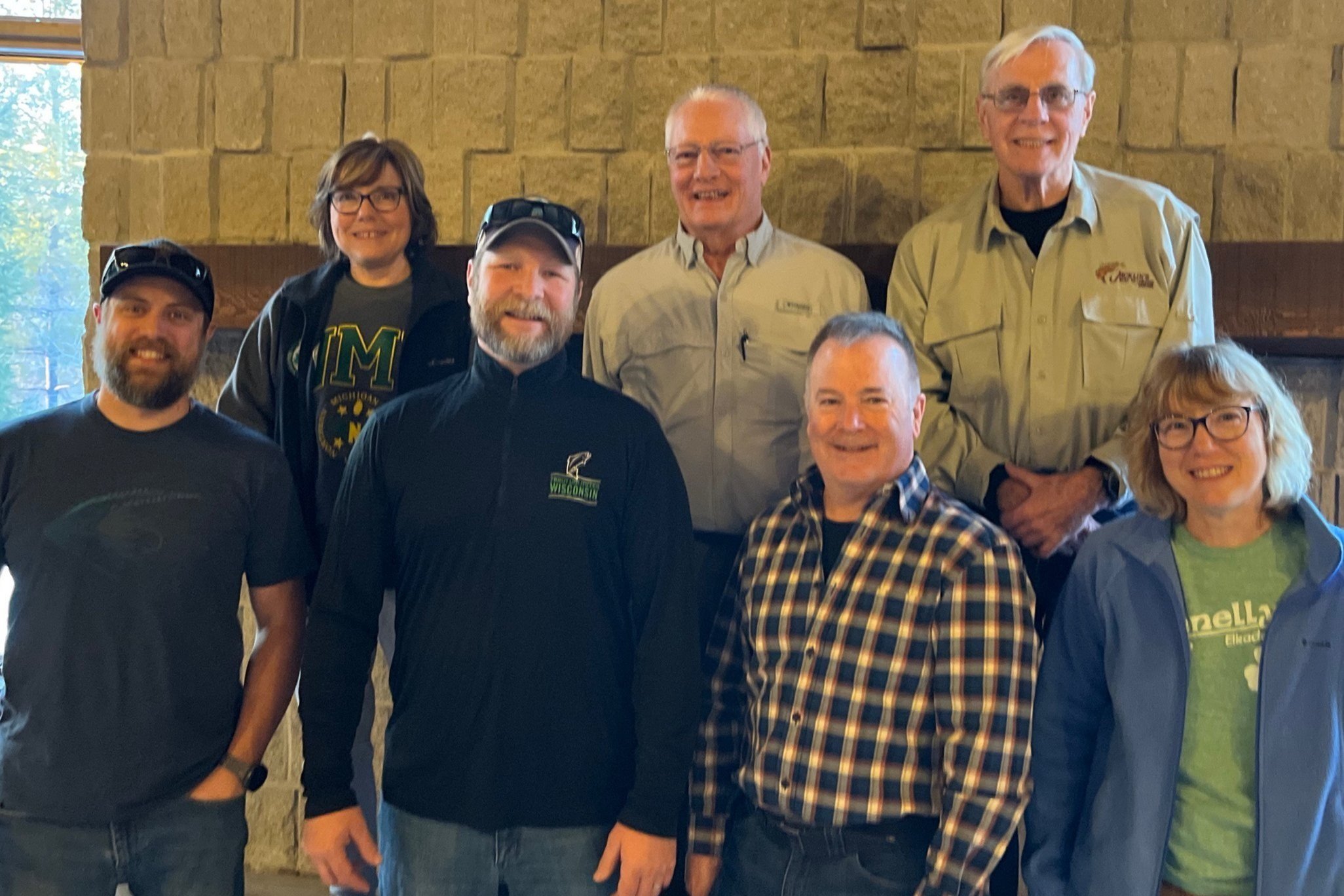
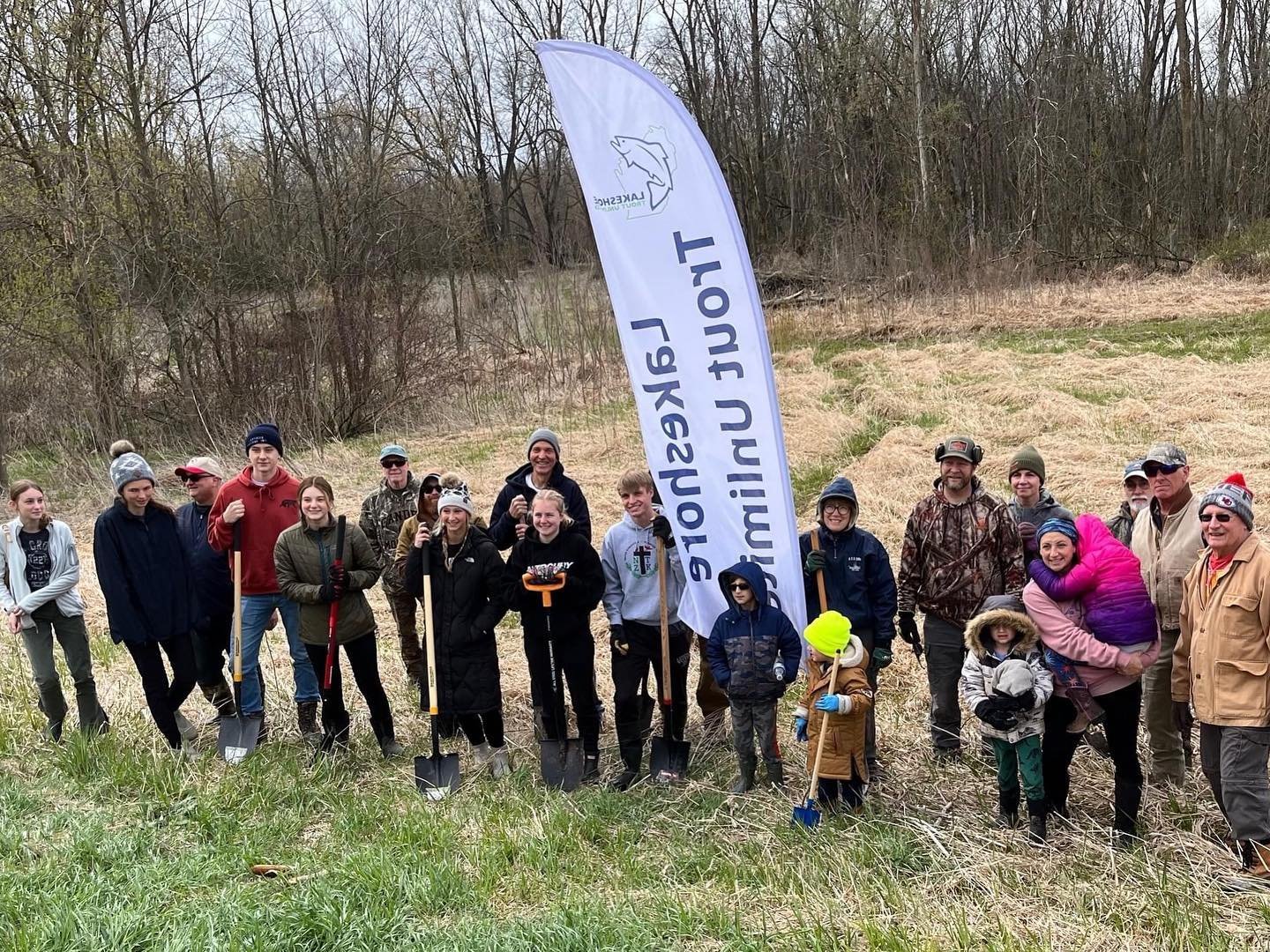
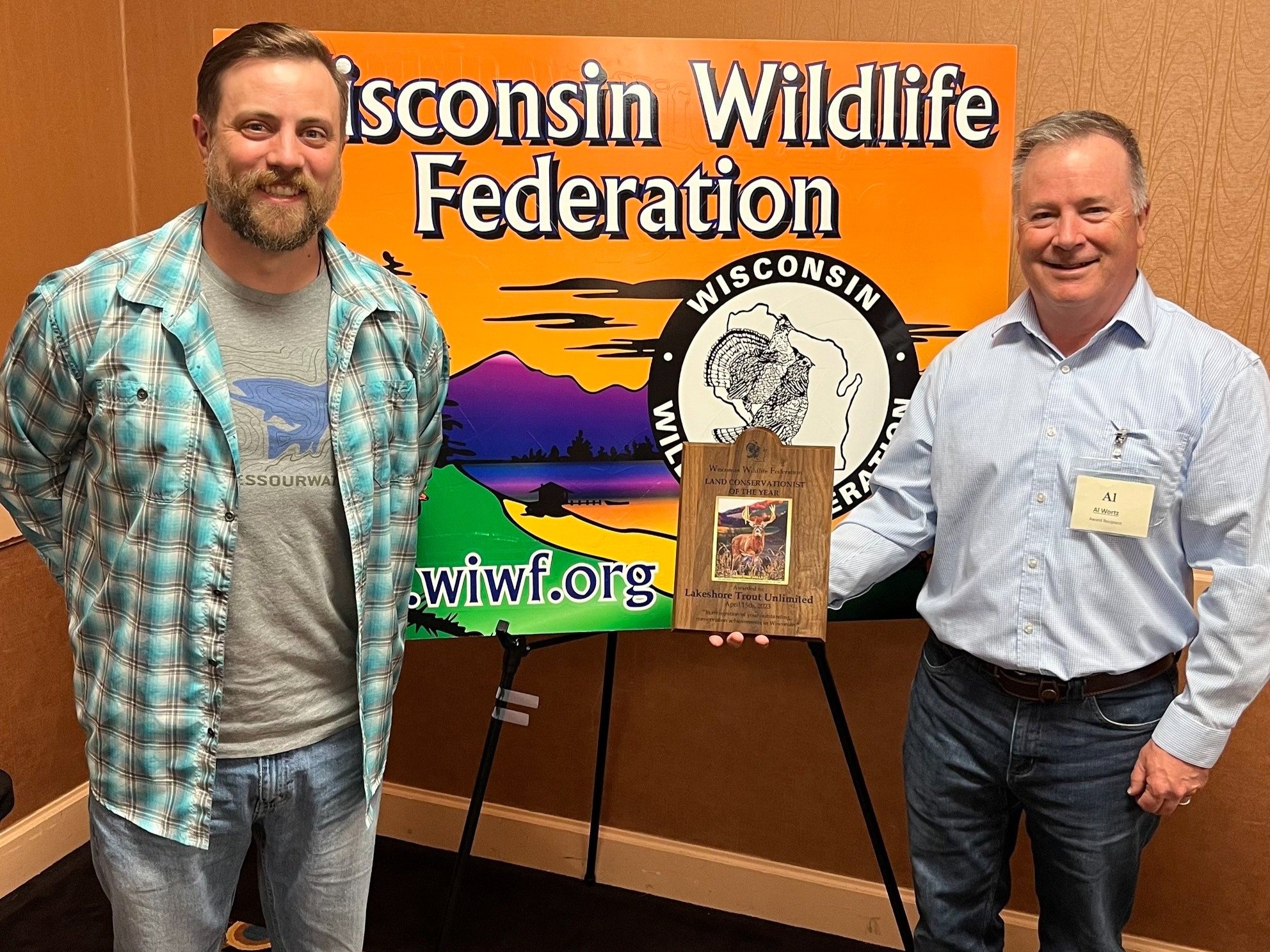
The Lakeshore Chapter of Trout Unlimited (LSTU) is a leader in active environmental restoration and education projects aimed to care for the cold water fisheries of Kewaunee, Calumet, Manitowoc, and Sheboygan Counties.
The volunteer-based organization is in its fortieth year of service and is recognized as one of the top conservation organizations in Wisconsin. They are currently leading habitat restoration efforts on local trout streams and the public lands that border them. LSTU is also actively involved in youth outdoor education partnering through Trout in the Classroom, STREAM Girl Scout Camp, Fishing Week at Camp Y-Koda, Boy Scouts Fisheree, and Sheboygan County Conservation Association (SCCA) to share a love of nature and fishing with the next generation.
They are active in supporting other local groups in their conservation efforts and partnering on regional projects when opportunities arise. LSTU is working to ensure the sustainability of volunteers to do hands-on restoration work in the future by engaging youth, keeping the public apprised of work opportunities, having personal conversations with anglers they meet along the river, as well as seeking grants and donations on a regular basis.
“Recently, much of our restoration efforts have focused on the Onion River in Sheboygan County. We repaired existing bank covers that had been installed years ago to improve trout habitat and we reinforced banks that had eroded due to high water events over time. Additionally, we have removed dozens of fallen trees that cause major log jams in the streams. Emerald ash borer has hit the stream corridor extremely hard, causing trees to snap many feet off the ground and fall into the water. Some float free and some remain partially attached creating a very dangerous situation. All contribute to numerous log jams. Log jams are a detriment to the cold-water environment because they slow water flow, increase sedimentation and degrade cold-water habitats by increasing the water temperature. Log jams also make fishing access extremely difficult and potentially dangerous. Through monthly volunteer work days, this work has ensured the high quality of the environment and continued safe access to this unique public fishing resource.
LSTU works in constant partnership with the Wisconsin DNR to maintain and improve the cold-water habitat of Sheboygan County’s Onion River Fishery Area and Streambank Protection Area. Given the extremely limited resources available to the DNR, LSTU volunteers play a prominent role in habitat improvement and maintenance. We work closely with the fisheries biologist, the forester, and other DNR personnel and have secured necessary permits that allow us to work independently on specific improvement projects.
Much of the financial sustainability for the ongoing Onion River restoration is through the Onion River "River Keepers" Endowment Fund. This well-established fund is designated exclusively for maintaining existing restoration work and purchasing easements that allow access to the stream for maintenance purposes. While some maintenance work is supported by the WDNR Trout Stamp program, this fund supplements much-needed support for this imperative work.
Millions of dollars, including the value of volunteer time, have been invested to bring the Onion River back to being a Class One self-sustaining wild trout fishery. It is without a doubt the finest trout stream in Southeastern Wisconsin. It is this legacy that the Lakeshore Chapter of Trout Unlimited works tirelessly to preserve.”
- Wendy Lutzke, Lakeshore TU Board Member
In addition to being selected as a 2023 Lake Michigan Champion of Conservation, Lakeshore TU has recently been recognized by the Sheboygan County Conservation Association as the 2022 Water Conservationists of the Year, by the Wisconsin Conservation Congress as the 2022 State Conservation Organization of the Year, as well as by the Wisconsin Wildlife Federation as the 2023 Land Conservationists of the Year.
As a qualifying nonprofit organization, the Lakeshore Chapter of Trout Unlimited has chosen to self-direct the charitable award stipend through the national Trout Unlimited organization.
Photos submitted by Al Wortz, Chapter President, on behalf of the Lakeshore Chapter of Trout Unlimited as well as from the chapter’s online media.
Ron Schaper
Mr. Ron Schaper is being recognized for his leadership in the community-based effort to save and preserve the coastal ecosystem now known as the Point Creek Natural Area, located along Lake Michigan's shore in southeastern Manitowoc County.
“This award is accepted for the many who have done so much restoring Point Creek Natural Area. I am fortunate to be “standing on the shoulders” of many who had the vision, knowing it continues.” - Ron Schaper
“There will be No End to the Good We Have Done.”
Ron Schaper lives his commitment to environmental conservation every day in his woods on Lake Michigan. His land is surrounded by UWGB’s Kingfisher Natural Area and Point Creek Natural Area (PCNA). The PCNA property is owned by Manitowoc County and is located on the north side of Point Creek. His devotion to preserving the mature Northern mesic forest of his woods and the adjoining woods of Kingfisher Farm is evidenced by his persistent and consistent work on eliminating Dames Rocket and other invasives which he has done for the last 15 years.
In 1990-91 he led a group of over 350 neighbors and concerned citizens to stop the construction of a coal power plant, proposed to be located only one-quarter mile north of the current Point Creek Natural Area. His group defeated the plan for the power plant with the argument that it was not economically viable. With the defeat of the power plant, Ron and Robert Levin, the owners of Kingfisher Farm, first conceived of the idea of the preservation of their properties plus the Point Creek Natural Area land as one continuous ecological unit.
In 2002 Ron helped in establishing Point Creek Natural Area along with others by obtaining a Knowles-Nelson Stewardship Fund grant from the State of Wisconsin to enable the purchase of the land for Manitowoc County. His help included guiding a property tour for the DNR representative as part of the grant review process. The land was a pine plantation, consisting of thirty-nine (39) acres. In 2017 he became chair of the Point Creek Management Committee and developed an approved management plan to harvest the nonnative pine trees and restore the land as part of one continuous ecological unit, congruent with his personal property as well as the forest of Kingfisher Farm on the south side of Point Creek. He organized a community planting effort of more than 85 volunteers planting 2100 trees over two days. The selection and planting of trees, shrubs, and perennials were intentional, to make that land one with the ecological unit to the south, which has an outstanding collection of spring ephemerals.
Point Creek Natural Area possesses a special habitat. All of it is within 600 ft of Lake Michigan and the temperatures are consistently 15+ degrees cooler during the growing season. The tree selection took into account global warming and, in the future, to be a remnant forest because of its microclimate. Since the establishment of the Point Creek Natural Area, he has also recognized the need and engaged in the painstaking task of invasive control throughout the Area.
In 2009-10 the focus became the preservation of the forest at Lakeshore Technical College. The DNR had approved and marked trees to be logged at the Old Growth Forest at Lakeshore Technical College. Ron formed a small group of esteemed biology professors from UW Manitowoc and UW Sheboygan to support the preservation of the forest and to stop the logging. The effort was successful, and as a result, the Old Growth Forest at Lakeshore Technical College remains and is permanently preserved, designated as Wisconsin State Natural Area #653. Ron wrote the trail guide and constructed the trails for the property. That area on the LTC campus represents three (3%) percent of Old Growth Forests remaining in Wisconsin.
“Dr. Schaper filled a vital role in the complex effort to secure this property in perpetuity as well as link it to the larger coastal, biological corridor. Ron has personally contributed hundreds of hours of hands-on restoration fieldwork at the site and has been instrumental in the community-based work that resulted in the preservation of the Point Creek Natural Area.”
-Rolf Johnson (Point Creek Management Committee Co-Chair)
The combined effect of these projects illustrates the importance of foresight, and the need for long-term, generational dedication to the care of Lake Michigan and to the land.
Ron is a retired dentist, a graduate of Carroll University with a Bachelor of Science degree in Biology and Chemistry, and of the Marquette Dental School with a DDS degree. He is an avid sailor and backpacker.
Ron has selected the Friends of Hika Bay as the recipient of the charitable award stipend to aid the continued invasive species management at Point Creek Management Area.
Abigail Nelson
Abigail Nelson is being recognized for her leadership in starting a cafeteria composting program at Gibraltar Area School District in Northern Door County.
After the Gibraltar Ecology Club had been on a hiatus, Abigail saw a need for the club to begin again, with a renewed commitment to composting and recycling.
She worked with the cafeteria staff and custodians to get the process going and also partnered with the Climate Change Coalition of Door County. To begin a composting program despite some challenges and opposition is a fantastic achievement and a true testament to her dedication toward environmental protection.
Abigail plans to pursue a degree and career in environmental studies following graduation.
“Beyond the composting initiative, Abbey has been incredibly involved in the Ecology Club’s other initiatives including tree planting, work on a rain garden at Evergreen Golf Course, attending public events, and reading to second graders within our school. Abbey showed a commitment to each of these Club activities, even when it was inconvenient to provide service. Abbey also saw the need to learn about the legislative process and attended a two-day Conservation Lobbying event for Door and Kewaunee Counties.
Her senior year portends to have more activities that move forward her missions of enjoying and protecting nature.”
-Mary Kate McCormack, Gibraltar High School Ecology Club Advisor
The composting program is working to lessen fossil fuels otherwise used to transport waste to a landfill as well as reducing carbon emissions that would come from the landfill decomposition process. Instead, the food waste is being made into nutrient-rich soil.
In 2022, the Champions of Conservation program added a new category to recognize a youth or youth group that demonstrates a knowledge and understanding of natural resource conservation and stewardship and promotes environmental awareness.
Abigail has selected The Ridges Sanctuary as the recipient of their charitable award stipend.
Wisconsin State Senator Robert Cowles
State Senator Robert Cowles has been chairman of Wisconsin’s Committee on Natural Resources and Energy since 2015 and was a leader on environmental issues in the legislature for twenty years prior to that.
From reducing farm runoff and PCB and PFAS contamination to fighting invasive species, Senator Cowles has authored a long list of important legislation dealing with clean water.
He has worked with local officials and used the rule-making process to make sure that bills had the maximum environmental benefit and has frequently worked with other legislators to improve their policymaking efforts.
Beginning in the late 1980s, Cowles authored the budget motion to do a mass balance study of the Fox River for PCB's, which was a crucial step in the massive cleanup process. He wrote legislation enacting a sea lamprey control program. In 2014 he authored legislation banning plastic microbeads. He wrote the legislation that began the producer-led watershed protection grants, which have been very successful.
“The water in the Fox River, Bay of Green Bay, and Lake Michigan are arguably cleaner due to Rob's relentless efforts. Over the past forty years, Rob has very clearly impacted the health of Lake Michigan and our other waters. Rob has always been one of the least partisan legislators. He is widely respected on both sides of the aisle, as well as in the DNR.
He is a quiet and unassuming person who does not seek attention in what can sometimes feel like a lonely fight.”
-WI State Assembly Representative Joel Kitchens
In 2019, together Cowles and Representative Joel Kitchens wrote the bill that created a central clearinghouse for buying and selling pollution credits, an innovative, first-in-the-nation approach to reducing pollutants, especially phosphorous, in our waters.
Recently, he has been at the forefront of reducing PFAS contamination. His bill banned PFAS containing firefighting foam and recently put $125M toward further testing and removal, which was his budget motion.
The Champions of Conservation Policymaker category recognizes a government official who has led efforts to protect and enhance the resources of Lake Michigan and the Great Lakes.
Policymakers are not offered a charitable award stipend.
Champions of Conservation Nominations are open to any group, program, organization, business, or individual located in the Lake Michigan Basin
If you know a worthy Champion of Conservation, please watch for the annual call for nominations in June
Stay up to date on news from Lake Michigan Stakeholders by joining our e-newsletter mailing list:
http://www.lakemichiganstakeholders.org/contact
2023 Lake Michigan Champions of Conservation Selection Committee
